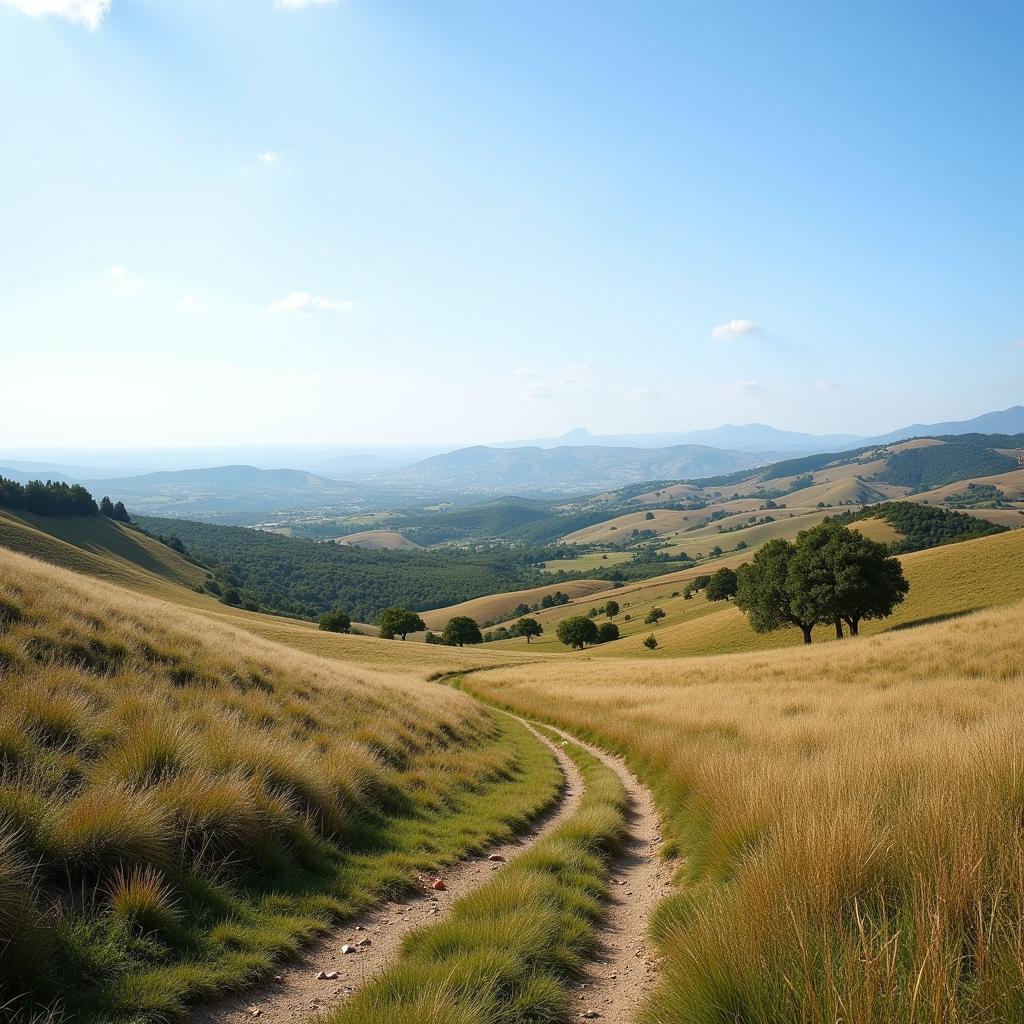Dreaming of escaping to the Spanish countryside, waking up to the sound of birdsong with the scent of orange groves in the air? The allure of rustic land in Spain is undeniable, and you might be wondering: can you put a mobile home on your little slice of Spanish paradise?
Understanding the Regulations
The short answer is: it’s complicated. Spain’s regulations surrounding mobile homes, or “casas móviles” as they are known here, can be tricky to navigate. The key lies in understanding the difference between “rustic land” (“suelo rústico”) and “urban land” (“suelo urbano”).
 Picturesque rustic land in Spain
Picturesque rustic land in Spain
Rustic Land vs. Urban Land
-
Urban land is designated for building and development, complete with access to utilities and infrastructure. Placing a mobile home on urban land is usually straightforward, falling under similar regulations as building a traditional home.
-
Rustic land is a different story. Designed to protect Spain’s natural beauty and agricultural heritage, rustic land comes with strict limitations on building. Generally, you can’t build permanent structures on rustic land without specific permissions, which can be difficult to obtain.
So, where do mobile homes fit in?
Because mobile homes are considered “movable property” rather than permanent structures, you might think they sidestep these restrictions. However, the lines become blurry.
Spanish law distinguishes between “mobile homes” (“casas móviles”) and “prefabricated homes” (“casas prefabricadas”). While both offer affordable and flexible housing options, their legal standing differs:
-
Mobile homes, by definition, are designed for temporary occupation and relocation.
-
Prefabricated homes, although built off-site, are intended as permanent structures.
Local authorities often treat mobile homes on rustic land as de facto permanent dwellings, especially if connected to utilities or anchored to the ground. This can lead to fines or even eviction.
Exploring Your Options
Don’t despair! While placing a mobile home on rustic land in Spain requires careful consideration, options do exist.
1. Check Local Urban Plans
Each municipality in Spain has its own urban plan (“Plan General de Ordenación Urbana” or PGOU). This document outlines what’s permissible on different land types. Your first step should be contacting the local town hall to obtain a copy of the PGOU and inquire about their specific regulations regarding mobile homes on rustic land.
2. Consider a “Camping” License
Some regions allow mobile homes on rustic land with a “camping” license. This option typically involves designated campsites with specific rules and regulations. Contact your local tourism office for information on camping licenses in the area you’re interested in.
3. Explore Prefabricated Homes
If you’re set on a more permanent dwelling, prefabricated homes offer a viable alternative. These homes, often built with sustainable materials and energy-efficient designs, can often be erected on rustic land with the proper permits. Consult with a local architect or builder experienced in navigating building regulations for rustic land.
Expert Insight
“Many people are drawn to the charm of rustic land in Spain, but it’s essential to understand the legal nuances,” says Maria Sanchez, a property lawyer based in Andalusia. “Don’t rely on hearsay. Always seek professional advice from a lawyer and architect familiar with the local regulations before making any decisions.”
Finding Your Spanish Haven with me Stay in Spain
Navigating Spanish property regulations might seem daunting, but “me Stay in Spain” is here to help! We connect you with local experts and provide resources to make your Spanish homestay dream a reality. Whether you envision a charming village cottage or a peaceful countryside retreat, we’ll guide you every step of the way. Contact us today to start your Spanish adventure!